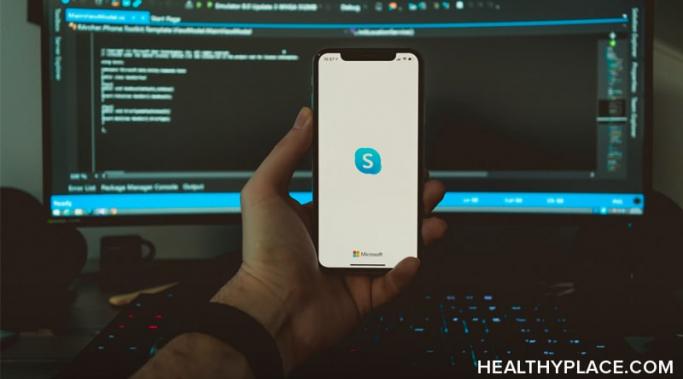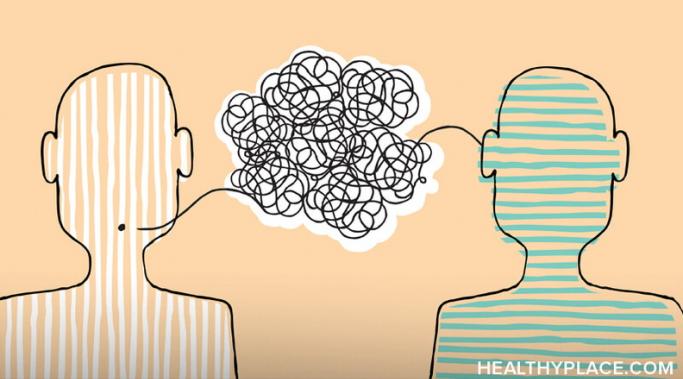Blogs
It's hard to believe that 14 months ago, I wrote my first blog for "Creative Schizophrenia." It seems like a month or two ago. That is the way with time as we get older, though. It slips away so quickly, almost as if it speeds up. After over a year of writing for this blog, it is time for me to move on and pursue other writing opportunities. This experience has been rewarding, and I don't take it for granted. I want to leave you with my hopes for all of you in 2024 and beyond.
Today I'm reviewing the queer app Lex. There are quite a few dating apps out there that the lesbian, gay, bisexual, transgender, queer, plus (LGBTQ+) community can use, but this is one of my favorites. It's a text-based dating app based on old lesbian personal ads looking for love and sex. The Lex app allows each user to include one photo, but it primarily functions off of short blurbs that are around 300 characters and a title. While it started focusing on love and sex, it has morphed into a queer social app with just about everything for everyone, including a myriad of queer community and social events. Today, I'll share three things I love and three things that could be better in my review of the queer app Lex.
As someone living with borderline personality disorder (BPD), unanswered text messages can feel agonizing. Living in a digital age where communication is often instantaneous, the absence of a response to a text message can trigger anyone. For us with BPD, the fear of abandonment and sensitivity to perceived rejection can intensify these emotions, leading to heightened distress. I will explore why unanswered text messages may dysregulate someone with BPD and offer personal strategies to help overcome anxiety by considering alternative perspectives.
I'm focusing on not drinking soda. Many people have different habits and addictions that they turn to during stressful times. Some common ones include social media, Netflix, alcohol, food, and drugs. In this post, I discuss how my habit of drinking Diet Coke affects my life. I also share four ways that I plan on using to stop drinking soda.
Battling self-doubt during trauma recovery can feel like an impossible feat. In my experience with posttraumatic stress disorder (PTSD), self-doubt is one of my most difficult struggles. I often compare myself to other people, second-guess my decisions, and pick myself apart until I feel unworthy and powerless. The vicious cycle of self-doubt in trauma recovery can be debilitating at times.
I control my daydreaming to lessen depression. I know "controlling your daydreaming" sounds a bit odd, but I've found that most mental processes can be controlled to some extent by paying attention. Interestingly, a new study has come out suggesting I had the right idea all along. If you control your daydreaming, you might reduce depression.
Now, I have therapy skills for my schizoaffective disorder, but that wasn't true when I was younger. My first psychotic episode hit 25 years ago this holiday season, when I was a student at the Rhode Island School of Design (RISD). I was only 19 years old—terrified and somewhat unaware of what was happening. I’ve grown up a lot since then. You can grow and change while living with a mental illness. I know because I did, and my mental illness changed with me. What helped me and my schizoaffective disorder grow up, along with medication, are skills I learned in therapy. Here are some of the ones I found to be most helpful.
Change is critical when healing from verbal abuse. Verbal abuse is a damaging tactic that many individuals use in relationships for various reasons. Although it may be common, this method of communication is harmful to the recipient. It can cause negative side effects for years, even after the verbal abuse is no longer present. The only way to move away from verbal abuse and heal is to change.
Having a strong support system is so important for anxiety. This is something I've learned throughout the years in my journey to learn more about my anxiety and how to cope with it. Even in times that I feel like I want to withdraw from others because I feel overwhelmed with anxious feelings, I make it a point to turn towards my anxiety support system.
Finding yourself falling into an anxious spiral is scary, and it's easy to feel out of control. Luckily, there are some physical skills you can utilize to fight off this feeling. Sometimes, in an anxious spiral, it's difficult to think clearly, so when I face those issues, I tend to lean into physical practices, meaning that I'm doing an action using my body and not necessarily my mind to find comfort. Using physical practices is a great way to center yourself and regain emotional balance.










Special thanks for the "trying". One of us has said "it is by trying that we succeed."